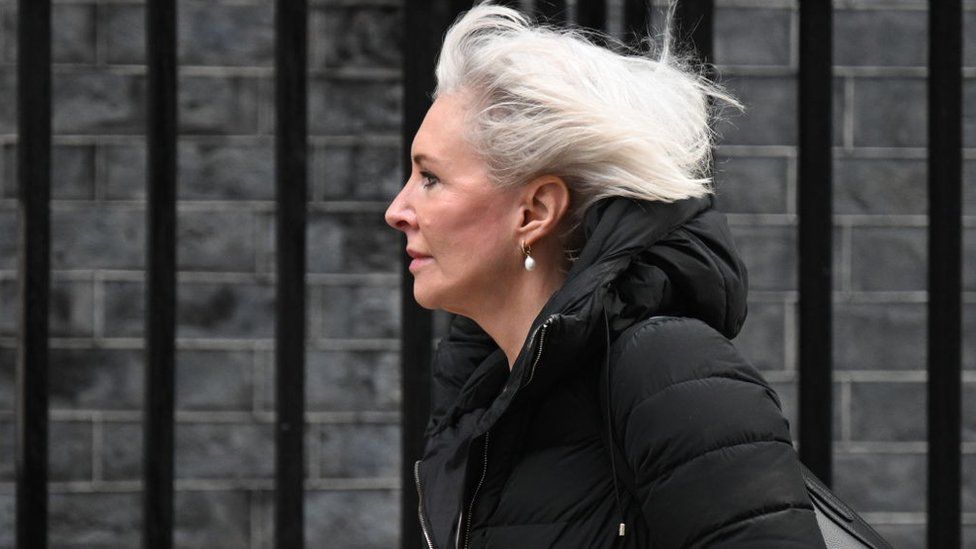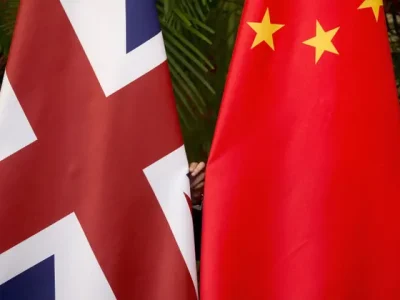The government is to introduce its long-awaited Online Safety Bill in Parliament on Thursday.
The bill is intended to tackle a wide range of harmful online content, such as cyber-bullying, pornography and material promoting self-harm. Social networks could be fined or blocked if they fail to remove harmful content, and their bosses could be imprisoned for a lack of compliance.
Labour said the bill’s delays meant disinformation in the UK was growing. The bill’s regulator Ofcom will have the power to request information from companies, and executives who do not comply could face up to two years in prison within two months of the bill becoming law.

Senior managers would also be criminally liable if they destroyed evidence, did not attend an Ofcom interview, provided false information, or otherwise obstructed the regulator from entering offices. Any firm breaching the rules would face a fine of up to 10% of its turnover, while non-compliant websites could be blocked entirely.
Culture Secretary Nadine Dorries said the bill meant tech firms weren’t left to “check their own homework”. “Tech firms haven’t been held to account when harm, abuse and criminal behaviour have run riot on their platform,” she said.
One of the new aspects of the bill is the introduction of a “right to appeal” for people who feel their social media posts have been taken down unfairly. Big social media companies will be required to assess risks of the types of legal harms against adults which could arise on their services and will have to set out how they will deal with them – and enforce these terms consistently.
Definitions of these legal harms will be set out in additional legislation, but potential examples could include material promoting self-harm, eating disorders or harassment. The legislation has taken some time to reach the stage where a bill is now to be laid before Parliament. An Online Harms White Pape was first introduced in April 2019 by the Conservative government – then led by Theresa May. It proposed a single regulatory framework to tackle a range of harms.
At its core was a duty of care for internet firms to tackle harmful content, with an independent regulator (later designated to be Ofcom) set up to oversee and make sure they were complying. While children’s charities, such as the NSPCC, welcomed the move, others felt that the term “harms” was insufficiently defined. Privacy organisations such as the Open Rights Group warned that the bill could threaten freedom of expression.
The name had changed to the Online Safety Bill when a draft version was included in the Queen’s Speech last May and published the following day.

A joint committee made up of MPs and members of the House of Lords was set up two months later, tasked with scrutinising its content.
- all pornography sites should have duties to stop children from accessing them
- individual users should be able to complain to an ombudsman when platforms did not meet their obligations
- tech firms should appoint a safety controller
- scams and frauds – such as fake adverts – should be covered
- the bill should look not just at content but at “the potentially harmful impact of algorithms”
The Law Commission also proposed a range of new criminal offences should be created, including:
- promoting or stirring up violence against women, or based on gender or disability
- knowingly distributing seriously harmful misinformation
- cyber-flashing – the sending of unwanted naked images
- deliberately sending flashing images to those with epilepsy
There has been a flurry of changes to the legislation in the last few months. In February, the Department for Digital, Culture, Media and Sport (DCMS) said that it would add extra offences to the bill, including revenge porn, hate crime, fraud, the sale of illegal drugs or weapons, and the promotion or facilitation of suicide, people smuggling and sexual exploitation.
Other recommendations relating to cyber-flashing, hoax calls, encouraging or assisting self-harm and epilepsy trolling would be considered.
A few days later the DCMS announced that porn websites would be legally required to verify their users’ ages. And this month, it said that social media sites and search engines would be forced to stamp out investment fraud and romance scammers on their platforms.
Social media platforms would also have a new legal duty to prevent paid-for fraudulent adverts from appearing on their services. Martin Lewis, the founder of the MoneySavingExpert website, whose face is often used in fake adverts, said he was “thankful the government has listened to me and other campaigners” and included scams in the legislation.
Labour’s shadow culture secretary Lucy Powell said the bill’s delays “allowed the Russian regime’s disinformation to spread like wildfire online”. She added: “Other groups have watched and learned their tactics, with Covid conspiracy theories undermining public health and climate deniers putting our future at risk.”
One of the biggest debates was around online anonymity. Some argued a crackdown on the use of anonymous accounts should have been included in the bill. Others note that legislation asks for a lot of changes, but doesn’t always offer solutions. For example, it will be up to firms to decide how best to comply with the new rules around age verification.
Campaigners from a range of organisations, including Demos, Carnegie UK and Full Fact, said: “Rather than trying to ban or delete every piece of potentially harmful content, the bill must protect free speech by tackling big tech platforms’ business models that rely on amplifying sensational and extreme content to large numbers of people.”
Others argued the bill was unlikely to live up to expectations. Jim Killock, Open Rights Group executive director said: “The fact that the bill keeps changing its content after four years of the debate should tell everyone that it is a mess, and likely to be a bitter disappointment in practice.”
![]()





